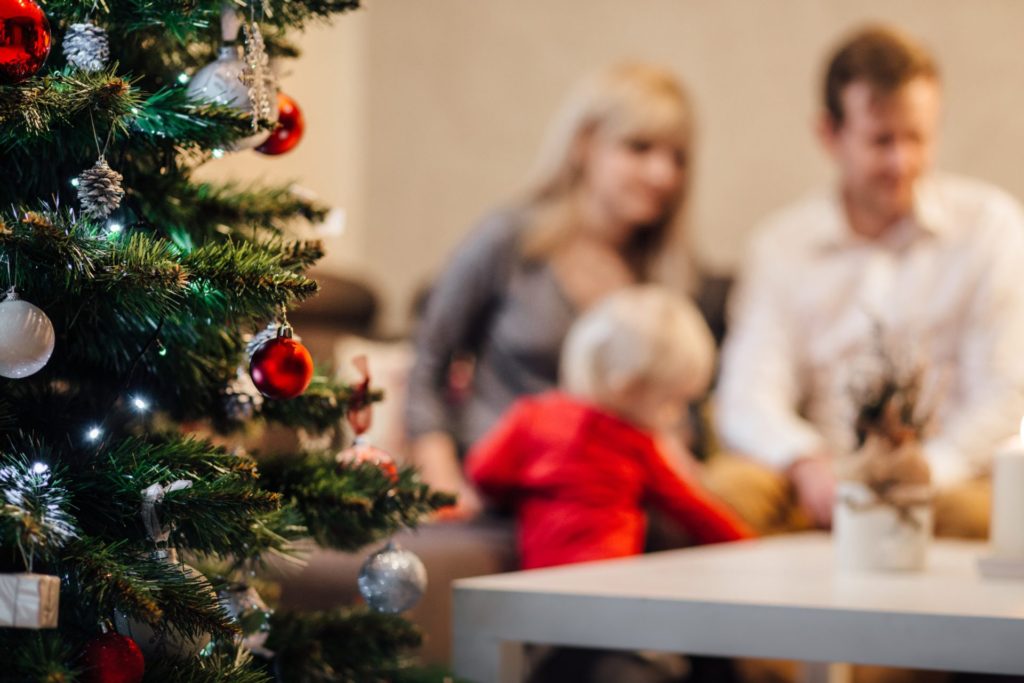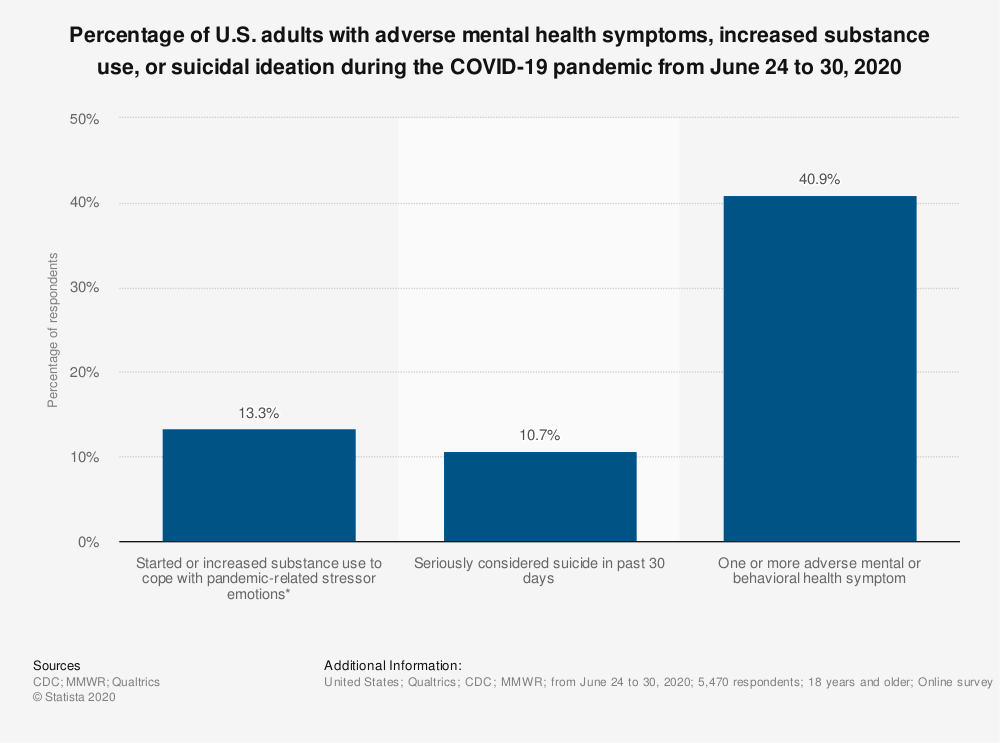
The holiday season can be a stressful time for anyone. Taking measures to protect your mental health, especially in the time of COVID-19, can help alleviate the compounded stress one may experience.
Winter blues
The last fews months of any year in the United States are marked by colder temperatures and less sunlight. Many people experience symptoms of depression during this time, if not for only a few months. These symptoms can include general sadness or anxiety, loss of interest in normal activities, oversleeping or overeating. Mental health experts refer to this as seasonal affective disorder. Being aware of this phenomenon can help you navigate additional stress and anxiety from coronavirus-related issues.
COVID-19 and mental health
The unprecedented global pandemic has had a continued negative effect on the mental health of adults in the United States. According to a study from June 2020, over 40% of adults reported one or more adverse mental or behavioral health symptoms, including depression and anxiety. Sadly, almost 11% reported suicidal ideation.
If you are experiencing thoughts of suicide, please call the National Suicide Prevention Hotline at 800-273-8255.

COVID-19 has placed immense financial stress on many Americans, with some job sectors reporting rates of unemployment as high as 19%. With the expectation of purchasing holiday gifts, plane tickets, and spreads of food on top of this, it’s completely understandable to feel overwhelmed.
The novel coronavirus has taken the lives of over 250,000 people in the United States. If you have lost a loved one this year, their presence will of course be missing from your holiday celebrations. Taking time to grieve properly is imperative.
How To Cope with Mental Illness During the Holidays
Set Boundaries
Setting personal boundaries to protect your mental health should be a routine tactic, especially during this holiday season. If your normal holiday celebrations consist of large gatherings, you may feel pressure from family or friends to attend. However, if COVID-19 rates are high in your area or the area where you would normally travel for the holidays, it’s perfectly acceptable to decline these invitations. Not only can large gatherings put your physical health at risk, but the worry of potentially contracting the virus can increase stress and anxiety levels. This can create a cyclical effect, as physiological stress has been shown to negatively affect one’s immune system, leaving you even more susceptible to worsened COVID-19 or other illness symptoms.
When setting boundaries, be direct and do not offer compromises to what you have determined as important for your mental health:
- Decline invitations early. The sooner you make the decision, the less negotiating your loved ones can attempt in order to get you to falter.
- Send a text or email. Talking on the phone or in a virtual meeting may be better for reconnecting, but putting your boundaries in writing leaves less room for ambiguity on both sides.
- Remind yourself that you value your time and energy. There is no shame in putting your needs and feelings first. Remember: setting boundaries can be an act of self-care.
Understand this year will be different
It’s easy to romanticize holiday parties in years past, but accepting that this year will be different for the health and safety of yourself and loved ones will make the fear of missing out much easier. Instead, take the changes in stride and embrace the limitations. Arranging a socially distanced family hike can be a new tradition, and getting time outdoors can support your mental health. If you would prefer to stay inside, collaborate with friends and family to arrange a virtual holiday gathering: select a menu or order food from a local restaurant and pick a central time to sit down to dinner together over a Zoom or Google Meet meeting.
Practice thanksgiving (with a small ‘t’)
Reminding yourself of all you still have to be thankful for can put your situation in perspective. It may sound trite, but practicing gratitude by recognizing even the simplest things to appreciate is a common Cognitive Behavioral Therapy (CBT) exercise. Taking time every day to write down three things you were appreciative of can reinforce the positive thought process and improve mental wellbeing.
Although life in a post-COVID world is very different than before, some changes may actually present new opportunities. Perhaps you learned how to cook in lieu of ordering out or adopted a new pet with your newfound time at home. Despite the changes caused by coronavirus this year, practicing gratitude can reveal unseen benefits.
If you find yourself overwhelmed by the holiday season, the COVID-19 pandemic, or anywhere in between, contact the health professionals at Alvarado Parkway Institute. For 24/7 support, call 619-333-7050. Information about our services can be found on our Services page here.
